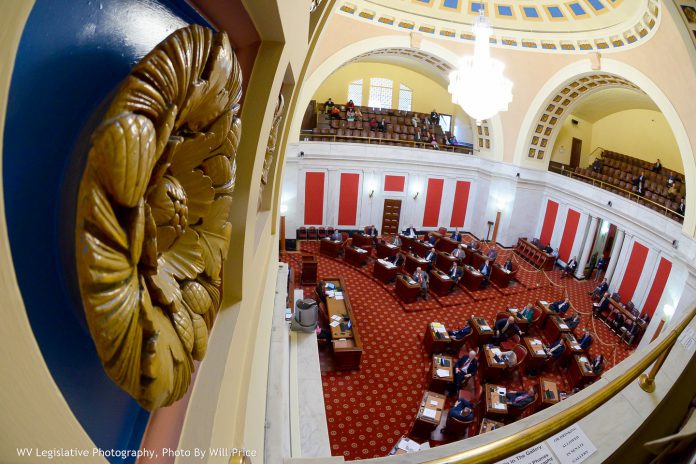For 60 consecutive days each year the West Virginia Legislature meets in a regular session to consider legislation and pass a budget for the state’s next fiscal year. Already this session lawmakers have worked together to complete legislation on House Bill 4086, a bill designed to improve West Virginia’s chances to attract a “cracker” plant. This facility would be used to process ethane from Marcellus natural gas to produce ethylene, one of the primary building blocks for petrochemicals and plastics. And, most importantly, construction of such a facility could create thousands of both short-term construction and long-term operations jobs and provide a serious boost to the state economy. Work on this legislation started in the House of Delegates where House Bill 4086 was first introduced.
“I am very pleased that the House was able to pass House Bill 4086 early in the second full week of session. The hope is this legislation will put West Virginia in a better position to be chosen for a cracker facility location. A $2 billion investment like this doesn’t come along every day – we wanted to get the bill moving quickly so the Governor has the tools he needs try to make that happen,” said House of Delegates Speaker Richard Thompson.

The House Minority Leader, Delegate Tim Armstead, agreed. “The cracker bill is a tremendous opportunity for our State. We have the resources, the workers, and the infrastructure that makes West Virginia the perfect location for the development of a cracker facility. I am pleased that the bill we passed was a bipartisan effort to attract a cracker plant. I hope we will do all we can as Republicans and Democrats working together to improve the economy of our State and to focus on making West Virginia a place where West Virginians can stay, raise their families, and go to work each day.“
Before it could become law however, lawmakers from both bodies are required to approve legislation prior to it heading to the Governor for approval. The bill was sent to the Senate, where it went through the legislative process again and was passed unanimously by Senators.
“This week the Senate passed House Bill 4086, which provides a property tax credit for manufacturers willing to invest $2 Billion in West Virginia to develop an ethane cracker plant,” said Senate President Jeffrey Kessler. “ In an effort to competitively court these industries, we, along with our colleagues across the hall, promptly passed this legislation. Our motivation is to send a clear message that West Virginia is not only open for business, but is ready to guarantee the success of this business for a long time.”
While lawmakers have acted to complete legislation on this particular bill, they will not be resting on their laurels, more bills require attention. This will necessitate further compromise by legislators from both parties.
Senate Minority Leader, Senator Mike Hall stated, “What I hope happens this session is that we take on the infrastructure problems in the state and work to improve our roads. I understand that the OPEB liability problem needs to be considered as well, but we have the time and should extend the effort to look at tort reform and infrastructure as well”
Lawmakers from both bodies recognize they will need to continue to work together to tackle the serious issues before them and to fulfill the job they were elected to provide for their constituents back home.
“With the passage of effective Marcellus Shale horizontal drilling regulation this past December and the property tax credit for the development of an ethane cracker plant, West Virginia is finally ready to tackle the last piece of its long-term financial debt – Other Post-Employment Benefits (OPEB). It is my goal to do everything in my power this session to develop a sensible, timely, and appropriate plan to pay down this debt,” said President Kessler. “West Virginia is on the verge of great things, and it is our responsibility with the opportunities before us to remain fiscally responsible in order to guarantee our success for generations to come.”
The Legislature has roughly three-fourths of the session before them and will continue meeting in committees and on the floor before the final gavel is dropped on the 2012 Regular Session.
“With several weeks left in the session, there are countless other issues the Legislature will tackle related to business, health, education, and our justice system. Then there is the state budget, which could be a challenge to balance,” said Speaker Thompson. “I think it will continue to be a busy and productive session.”

